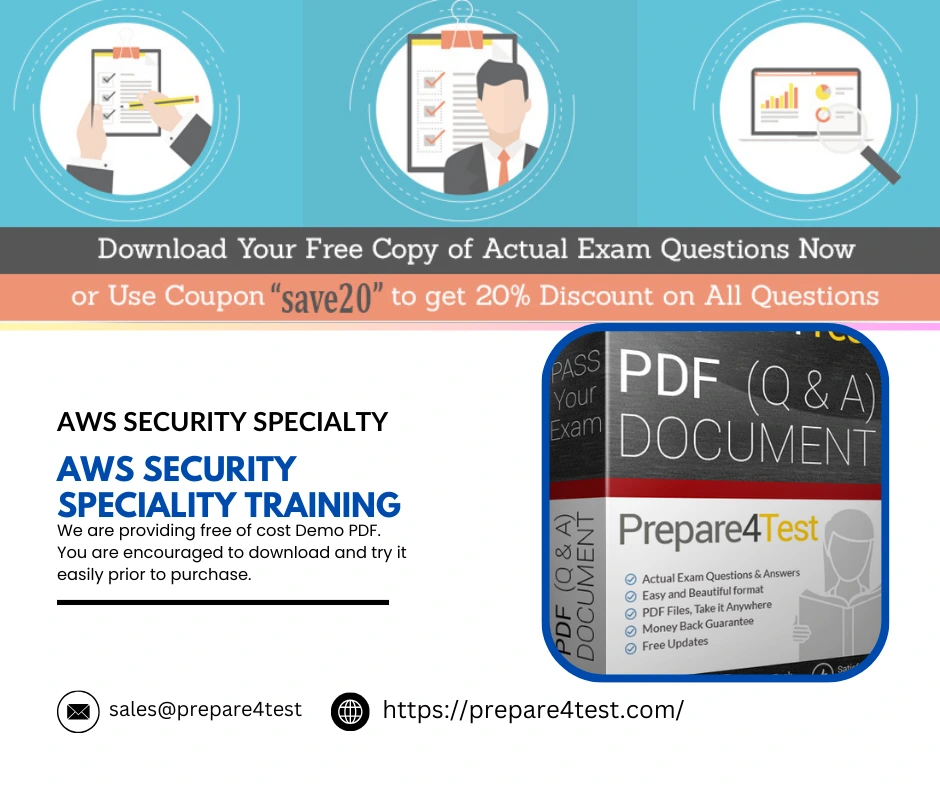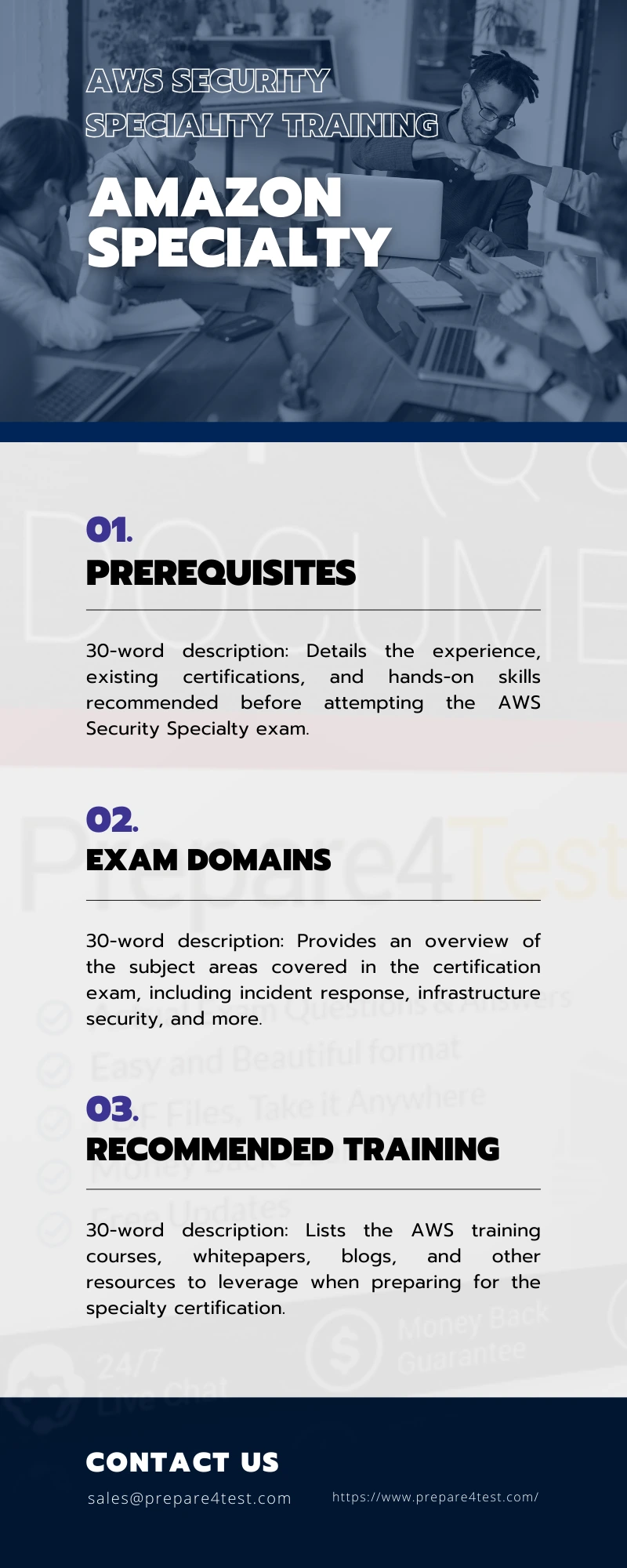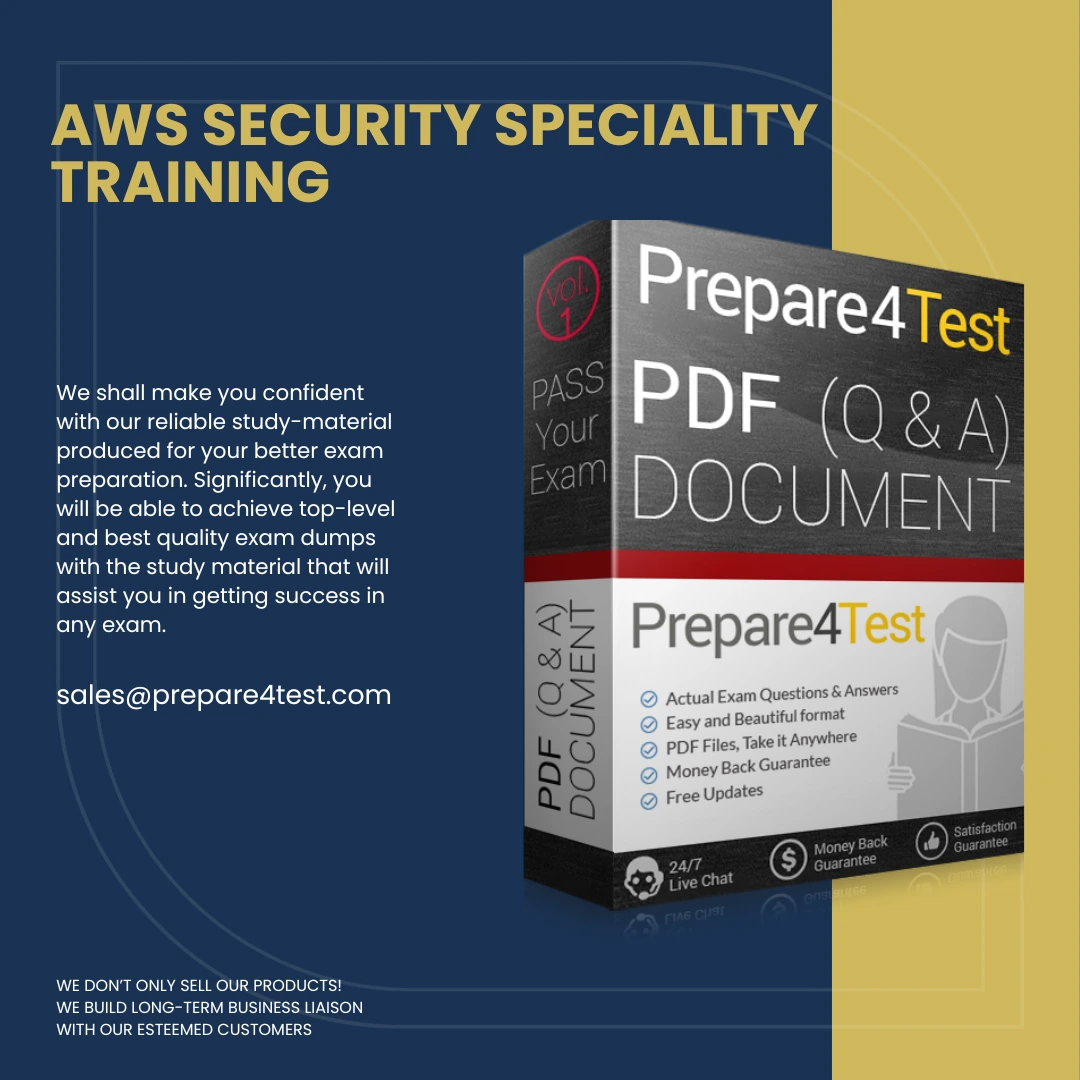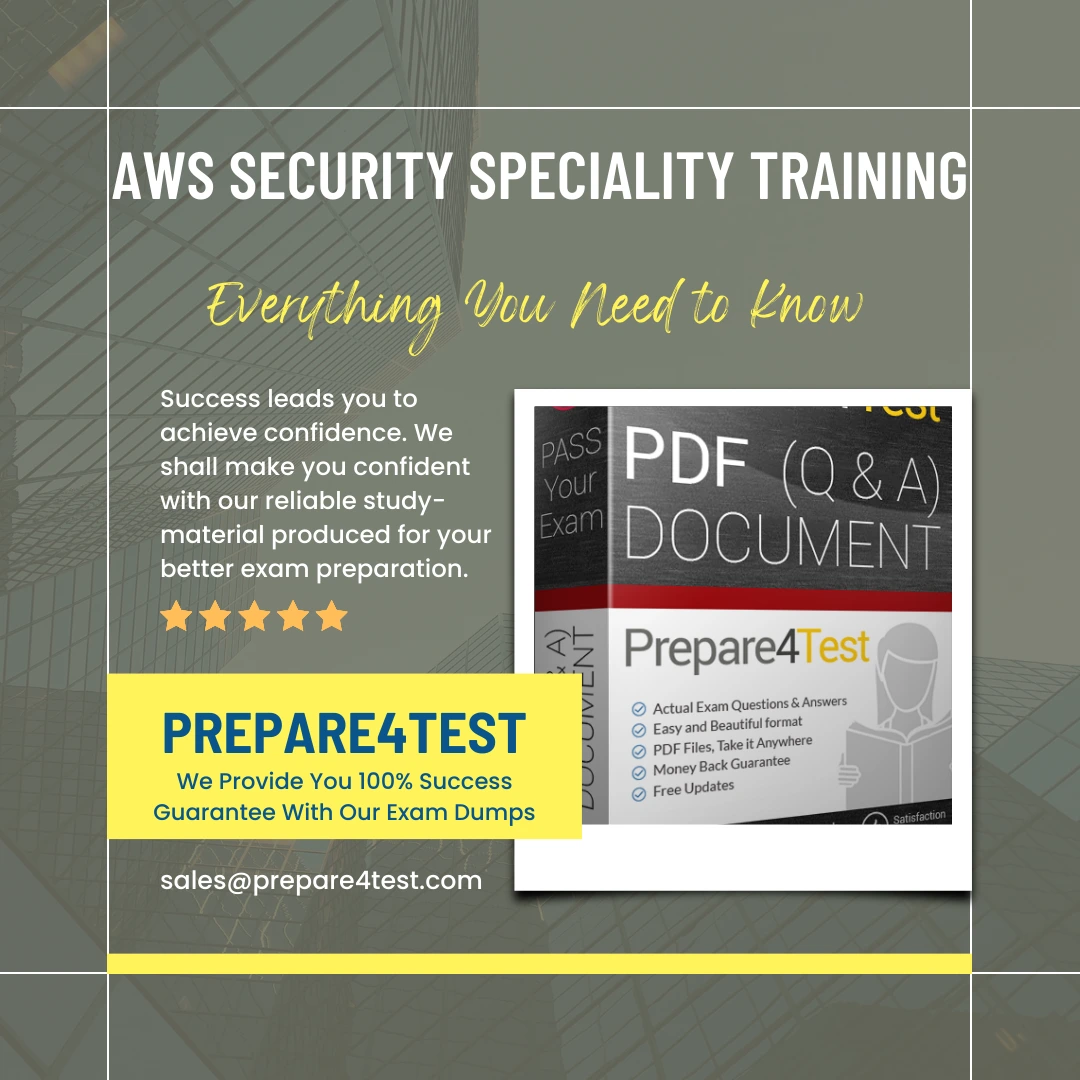
AWS Security Specialty certification validates advanced skills in securing AWS workloads and architectures. To pass the SCS-C01 and SCS-C02 exams, hands-on experience implementing security controls like encryption, identity access management, and logging is critical.
The specialty exam covers domains like incident response, infrastructure security, and data protection. AWS recommends completing security training like the Security Fundamentals digital course before attempting the exam.
Focus your preparation on using key services like AWS Identity Center, Amazon VPC, GuardDuty, and Security Hub. These provide capabilities for access control, network security, threat detection, and compliance monitoring.
After AWS training, validate knowledge with practice exams from resources like AWS Sample Questions and Exam Readiness course. Successfully passing the AWS Certified Security – Specialty exam demonstrates expertise to employers and boosts cloud security career opportunities.
The key is to combine AWS security training with hands-on practice. This develops the skills needed to design secure architectures and implement robust controls to pass the specialty certification.
Prerequisites

To take the AWS Certified Security – Specialty exam, you’ll need at least 5 years of IT security experience designing and implementing security solutions. Hands-on expertise securing AWS workloads is also required, with at least 2 years of hands-on experience recommended.
Some key areas to have experience with before attempting certification include:
– Implementing security controls like encryption, identity access management, and logging in AWS
– Developing monitoring and alerting strategies
– Managing vulnerabilities and automation
– Integrating AWS security services
– Backup and disaster recovery
– Cryptography and key management
– Data retention and compliance
Hands-on practice with AWS services like AWS Identity Center, Amazon VPC, GuardDuty, and Security Hub is highly recommended prior to the exam. These provide capabilities around access control, network security, threat detection, and compliance monitoring.
While general cybersecurity knowledge is useful, the exam focuses on specific AWS security features, services, and architectures. Hands-on expertise is critical to pass the specialty certification exam.
Exam Domains
1 Domain: Incident Response
The Incident Response domain covers critical skills like:
– Responding to compromised AWS instances and isolating affected resources.
– Validating and executing on incident response plans when security events occur.
– Configuring automated alerting to detect and respond to security incidents rapidly.
Hands-on experience with Amazon GuardDuty, Amazon Macie, and Amazon Detective is important for this domain. These provide capabilities like:
– Threat detection – analyzing VPC traffic, CloudTrail logs, and S3 data to identify malicious activity.
– Automated response – stopping attacks and protecting data by disabling compromised resources.
– Visualization – tracking the scope and impact of security incidents through event timelines.
Focus your preparation on incident response in the cloud, leveraging AWS services to improve detection, investigation, containment, and recovery. Validate skills by testing incident response plans and using tools like GuardDuty to generate alerts for a simulated incident.
2 Domain: Logging and Monitoring
The Logging and Monitoring domain covers designing, implementing, and troubleshooting logging and monitoring capabilities on AWS.
Focus your preparation on services like Amazon CloudWatch, AWS CloudTrail, and Amazon GuardDuty. CloudWatch provides metrics and log aggregation to monitor workloads. CloudTrail records API calls to enable security analysis and compliance auditing. GuardDuty uses threat intelligence to identify suspicious activity.
Hands-on experience with these services is critical. Validate skills by architecting a logging solution across accounts and regions, troubleshooting issues like missing logs, and configuring CloudWatch alerts triggered by GuardDuty findings.
Monitoring and rapid detection are essential for security incident response. Certification demonstrates you have the technical expertise to build effective logging and monitoring on AWS for security, operational visibility, and compliance.
3 Domain: Infrastructure Security
The Infrastructure Security domain covers skills in designing, implementing, and troubleshooting secure networks, edge services, and compute environments on AWS.
Focus your preparation on Amazon VPC, AWS Shield, Amazon CloudFront, and Amazon EC2 security groups. VPC enables creation of isolated networks, CloudFront protects against DDoS attacks, and security groups filter traffic to EC2 instances.
Hands-on experience with these services is essential. Validate skills by architecting a multi-tier VPC with public and private subnets, implementing AWS WAF rules to filter malicious requests, and troubleshooting connectivity issues between VPCs and on-premises networks.
Robust edge security, network segmentation, and host hardening provide a strong foundation for workloads on AWS. Certification demonstrates you have the technical proficiency to build secure infrastructure and troubleshoot issues for availability, integrity, and confidentiality.
4 Domain: Identity and Access Management
The Identity and Access Management domain covers critical skills in implementing authentication, authorization, and access control on AWS.
Focus your preparation on services like AWS Identity and Access Management (IAM), AWS Single Sign-On, and Amazon Cognito. IAM enables creation of users, groups, roles, and policies to manage access. Single Sign-On provides SSO capabilities using SAML. Cognito provides user identity pools for mobile apps.
Hands-on experience with these services is essential. Validate skills by implementing multi-factor authentication, rotating access keys, integrating with on-premises identity providers, authorizing IAM roles for EC2 instances, and troubleshooting permission issues.
Robust identity and access management controls provide the foundation for securing AWS environments and resources. Certification demonstrates you have the technical proficiency to architect secure authentication, authorization, and access management.
5 Domain: Data Protection
The Data Protection domain focuses on skills for implementing encryption, managing keys, and troubleshooting data security controls in AWS.
Hands-on experience with services like AWS Key Management Service (KMS), Amazon S3 encryption, and AWS Certificate Manager is critical. KMS enables creation of keys and control of encryption operations. S3 and EBS encryption protect data at rest. ACM provides SSL/TLS certificates.
Validate skills by encrypting S3 objects using KMS keys, implementing client-side data encryption, rotating encryption keys, and troubleshooting issues decrypting S3 objects or accessing encrypted EBS volumes.
Robust data protection controls like encryption, key management, and SSL/TLS certificates provide confidentiality and integrity for data in the cloud. Certification demonstrates proficiency implementing layered controls following best practices and compliance frameworks.
Recommended Training

AWS recommends completing several security training courses before attempting the specialty certification exam. These provide foundational knowledge across key domains like encryption, access control, monitoring, and incident response.
Recommended courses include:
– AWS Security Fundamentals – Covers cloud security best practices
– Advanced Architecting on AWS – Dives deeper into security architecture
– Security Operations on AWS – Focuses on threat detection and response
AWS also provides free digital training content and whitepapers to supplement courses.
Hands-on experience with AWS security services is critical. Focus your preparation on using key services like AWS Identity Center, Amazon GuardDuty, Amazon Inspector, and AWS Security Hub.
Validate knowledge by completing labs to get practical experience with encryption, identity management, network security, logging, and compliance controls. Certification demonstrates you have moved beyond conceptual knowledge to gain the technical proficiency to architect and operate secure workloads on AWS.
AWS Security Speciality Training Practice Exams

Practice exams are critical preparation resources to validate your knowledge before attempting AWS certification. They help identify gaps in understanding across key exam domains.
AWS provides the following practice resources:
– Sample Questions – Free questions covering each exam domain
– Practice Exams – Paid full-length practice tests
– Exam Readiness digital course – Timed practice exams with feedback
Third parties also offer full-length practice tests like Whizlabs and Udemy.
When taking practice exams:
– Use exam modes that simulate real testing conditions
– Review explanations for any missed questions
– Identify domains needing more focus
– Retake exams until scoring over 85% consistently
Practice tests reinforce learning, improve recall, and reduce test anxiety. They provide feedback on areas needing more preparation before your actual certification exam. Focused practice is key to validate the technical security skills needed to pass the AWS Certified Security – Specialty exam.


